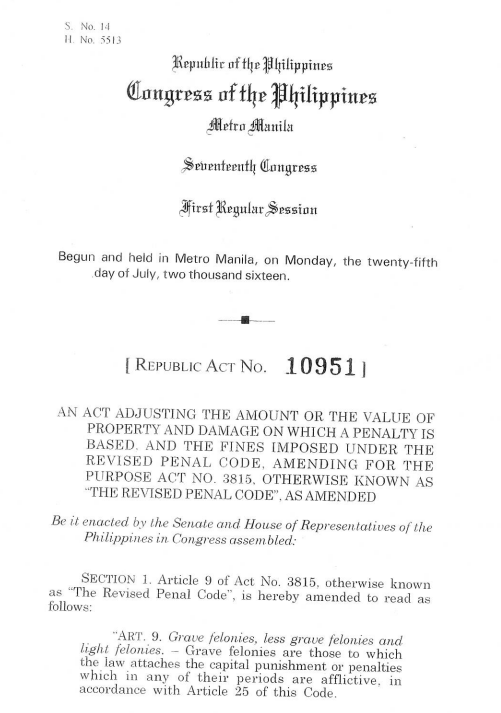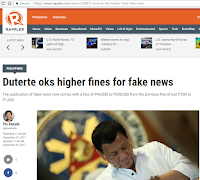With the prevalence of fake news from all sides of the political and social spectrum, Duterte signed the law that amended the 87-year-old Revised Penal Code that also placed penalties on unlawful use of publication and unlawful spoken statements.
Advertisements
Article 154, Section 18 of the act provides a penalty of arresto mayor - that's one month and one day up to six months in prison. Included in the penalty is a fine ranging from P40,000 to P200,000. The penalty used to be only ₱200 to ₱1,000 only.
The punishment may be imposed against any person who by means of print, lithography or any other methods of publication shall publish or cause to be published as news any "false report that might endanger public order or damage the interest or credit of the state."
The statement "other methods of publication" could also mean online publications. A majority of fake news nowadays is spread online via social media sites, web pages and video streaming.
The law also covers any person who shall maliciously publish, or cause to be published any official resolution or document without proper authority or before they have been published officially. This means leaking of government documents will merit penalties of prison sentence and fine.
The printing, or causing to print, and the distribution of published or distributed books, pamphlets, periodicals or leaflets which do not bear the real printer’s name, or which are classified as anonymous is also punishable under RA 10951.
Sponsored Links
The measure will take effect 15 days after its publication in at least two major newspapers. It will be applicable to pending cases before the courts where trial has already started.
See the full law, click here or the image below:
sources: Rappler, PhilStar
See the full law, click here or the image below:
sources: Rappler, PhilStar
©2017 THOUGHTSKOTO
SEARCH JBSOLIS, TYPE KEYWORDS and TITLE OF ARTICLE at the box below











